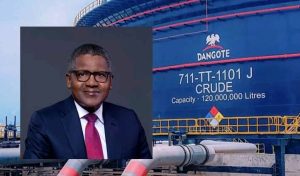Niger’s military-appointed prime minister made an unannounced visit to neighbouring Chad on Tuesday as West African states set talks for mulling possible military intervention to reverse his country’s coup and the United States and Russia urged a diplomatic solution to the crisis.
Ali Mahaman Lamine Zeine, a civilian appointed by the military rulers who ousted Nigerien President Mohamed Bazoum on July 26, arrived in Chad for a “working visit,” the Chadian government said on Facebook.
In a statement issued after meeting Chadian President Mahamat Idriss Deby Itno, Zeine said he had brought a message of “good neighbourliness and good fraternity” from the head of Niger’s regime.
We are in a process of transition, we discussed the ins and outs and reiterated our availability to remain open and talk with all parties, but insist on our country’s independence,” he said.
Deby, a key player in the unstable Sahel, had flown to the Nigerien capital Niamey four days after the coup.Photos later showed him pictured next to the detained Bazoum and, separately, with one of the regime’s leaders, General Salifou Mody.
– Diplomacy call –
Zeine’s unannounced visit came hours after sources in the region said military chiefs from the regional bloc ECOWAS would meet in Ghana on Thursday and Friday to discuss possible intervention in Niger.
The meeting — originally scheduled for last Saturday but then postponed — flows from an ECOWAS summit last week which approved deployment of a “standby force to restore constitutional order” in Niger
Analysts say military intervention would be operationally risky and politically hazardous, given divisions within ECOWAS ranks and fears of worsening the Sahel’s chronic instability.
But the option of force also came with the bloc’s insistence that it preferred a diplomatic outcome — a scenario that Washington strongly backed on Tuesday.
“I believe that there continues to be space for diplomacy in achieving that result,” US Secretary of State Antony Blinken told reporters.
The pressure that’s been exerted by many countries including through ECOWAS on the military leaders responsible for disrupting the constitutional order in Niger is mounting.
“I think they have to take that into account, as well as the fact that their actions have isolated them from the region and the world.”
Russian President Vladimir Putin called for a “peaceful political and diplomatic” resolution to the crisis in a phone call with Mali’s junta leader, Assimi Goita, the Kremlin said on Tuesday.
Bazoum’s election in 2021 was a landmark in Niger’s history, ushering in the country’s first peaceful transfer of power since independence from France in 1960.
His ousting unleashed a shock wave around West Africa, where Mali and Burkina Faso — likewise battered by a jihadist insurgency — have also suffered military takeovers.
ECOWAS — the Economic Community of West African States — applied a tough roster of trade and financial sanctions, while France, Germany and the United States suspended their aid programmes.
The regional bloc gave the new regime a one-week ultimatum on July 30 to restore Bazoum or face the potential use of force, but the deadline expired without action.Niger’s military regime has sent mixed signals since the crisis erupted.
At the weekend, the coup leaders said they were open to a diplomatic push after their chief, General Abdourahamane Tiani, met with Nigerian religious mediators.
Those talks came after the ECOWAS military meeting in Ghana was postponed for “technical reasons”.
But on Sunday night, Niger’s rulers declared they had gathered sufficient evidence to prosecute Bazoum for “high treason and undermining internal and external security”.
The legal threat was angrily condemned by ECOWAS, which lashed it as a contradiction of the regime’s “reported willingness” to explore peaceful means. Washington said it was “incredibly dismayed”.
The row overshadowed talks under African Union (AU) auspices that began on Monday in Addis Ababa, bringing together representatives from the regime and ECOWAS.
– Poor and unstable –
A landlocked nation in the heart of the arid Sahel, Niger is one of the world’s poorest and most turbulent countries.
Bazoum, 63, survived two attempted coups before being ousted, in the fifth putsch in the country’s history.
His ousting deals a huge blow to French and US strategy in the Sahel.
France refocused its anti-jihadist operations on Niger after withdrawing from Mali and Burkina Faso last year following a bust-up with their juntas.
International concern is mounting for the state of Bazoum, his wife and son, who have been held at the president’s official residence since the coup.










